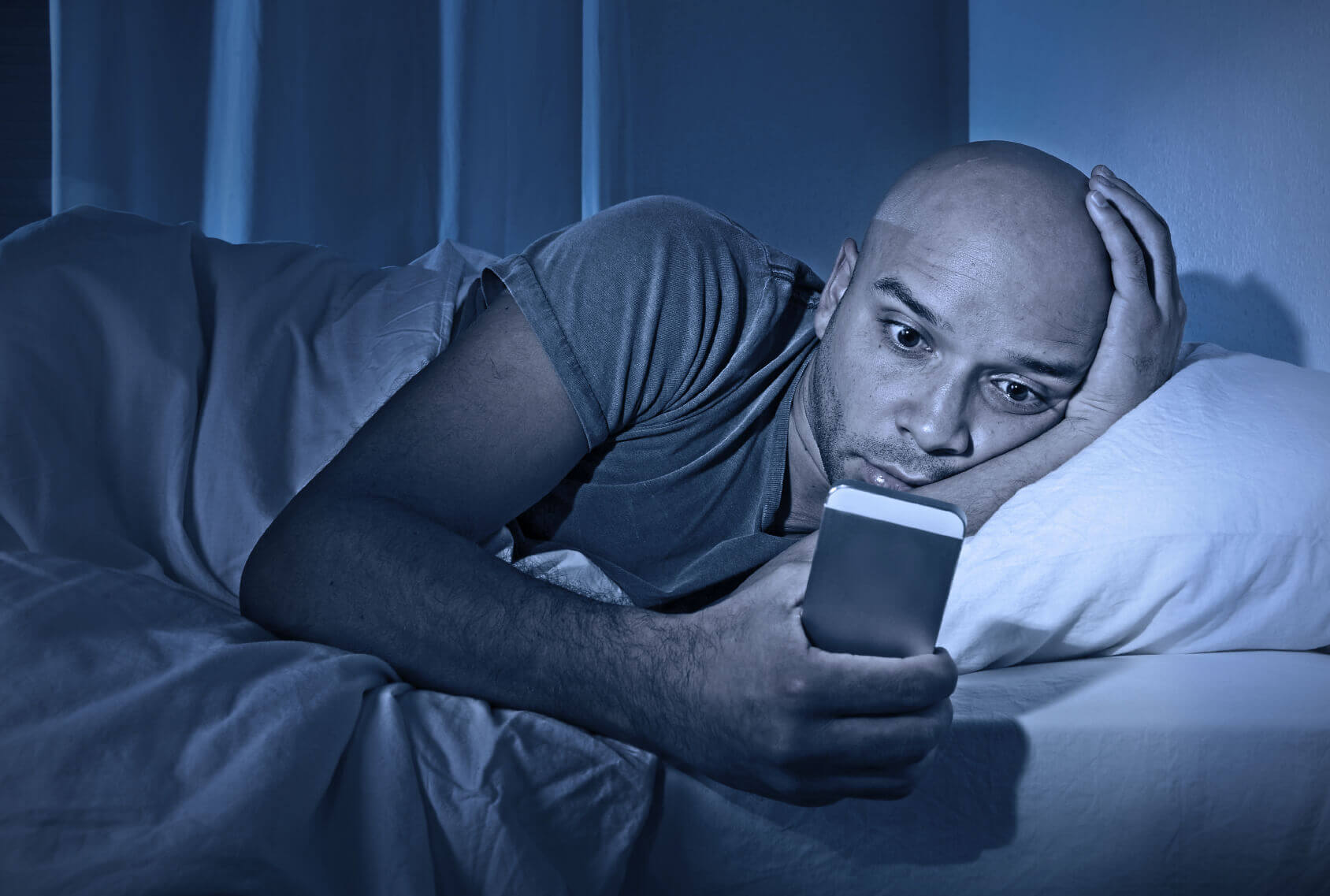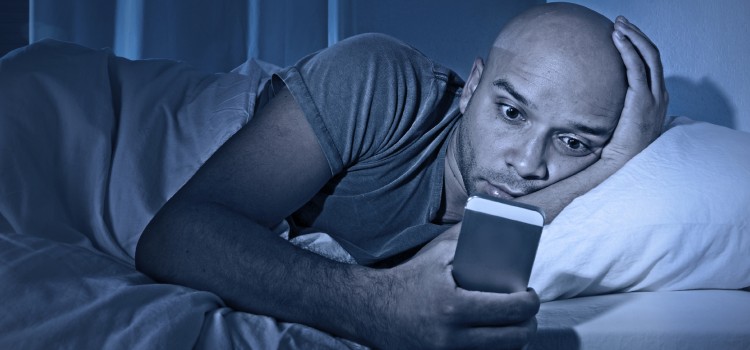Studies have shown that insomnia is a very real, dangerous and destructive aliment suffered by many patients recovering from addiction. Because of the severity of long term and persistent insomnia it causes several people to relapse. The Journal of Addiction Medicine published a report which referred to insomnia as a “prevalent and persistent” problem. There are many reasons for insomnia causing relapse among recovering addicts, in the case of patients recovering from alcohol addiction particularly, as it is often used by people to aid sleep. Unfortunately despite the apparent drowsy and sleep inducing effects, alcohol actually causes severe problems for quality sleep due to its toxic effects on the brain. It can even lead to continuous and long term sleep problems. Due to the challenges already faced by addicts it would be reasonable to assume that insomnia treatment would aid in preventing relapse.
Curing this particular ailment would in part assist to the wellbeing and recovery of patients. However there are mixed reviews and theories in relation to this, again referring to alcohol specifically; it can prove useful and in many cases assists in the early stages of recovery. In others it can counter act recovery and even lead to greater addiction. Clinicians have concerns around prescribing patients with medication as there are such high instances of misuse and abuse of prescription drugs. The fear would be that one addiction could be replaced by another in a bid to get some sleep. While insomnia has been linked to relapse, medications for insomnia could also cause relapse.
It is however extremely important to recognize that not all those in recovery will become addicted to sleep medication if taken and in certain situations this medication is necessary and even essential in overcoming insomnia. Also studies and research have shown that not all medications for sleep problems are addictive and clinicians should not avoid prescribing it to those in recovery, as it is often a necessary aid in overcoming their addiction and alleviating the struggles associated with early recovery.
An alternative approach being used more and more is behavioral therapy, in particular Cognitive Behavioral Therapy (CBT). CBT works with patients on their sleep hygiene through sleep diaries, education, practical steps and questionnaires to determine solutions to the insomnia. Through alternative approaches to insomnia such as education, patients can reduce their risks of relapse and dependency from taking prescription medication. Once an individual is armed with basic sleep principles and practical tips and information on how to tackle insomnia, they have the potential to overcome the issue without medication. Simple steps like a sleep diary, not taking caffeine or other substances that may negatively impact sleep before bed can help in getting a good night’s sleep.
Sleep problems can be long term but often they are just a side effect of sobriety and once the individual in recovery gets through the first few weeks they will gradually return to a normal sleep pattern. For a long time both mind and body have been affected by chemicals often inducing sleep rather than it being a natural part of their day. Couple this with the often severe and uncomfortable symptoms of withdrawal and difficulty sleeping is understandable if not expected. Returning to a normal sleep pattern may signal the beginning of a healthy and sober life and their bodies adjusting to life without the addictive substance. For this reason it would probably be unwise to reach straight for sleep medication without allowing the process of recovery to run its course.
While insomnia can be linked to the early stages of recovery on a short-term basis, it can actually persist for months and even years. This reinforces an argument that those who develop addictive behaviors suffered from insomnia that predated their addiction. Therefore the association between the two is somewhat of a vicious circle. Throughout this research it is obvious that the same rules do not apply to everyone. People become addicts for different reasons, some people had sleep problems before their addiction, others suffer from insomnia as a symptom of their recover, some require medication and others don’t, some overcome the insomnia within weeks, for others it may take months. The point being, as with all issues related to addiction and recovery, one size does not fit all.
Working a 12 step program with a sponsor, praying and meditating on a daily basis can be extremely helpful in calming some of the turmoil of early sobriety. We are feeling feelings for the first time without medicating them with alcohol and we start to remember often very painful experiences from our past. In the Big Book of Alcoholics anonymous Bill says “rarely have we seen a person fail who has thoroughly followed our path” This was indeed true for me and the early recovery insomnia got much better. Although, I have to admit that I still occasionally suffer from it, I pray, I mediate and I journal my thoughts which I have found to be extremely helpful. One of my sponsors taught me the book shelf trick, she would say “Do you need to think about this now” which of course at 1.00 a.m. anything I am thinking about can wait till morning. She would then say now put on the bookshelf and you will get to it when you are ready. It worked, and nine times out ten I never even remembered what was bothering me and keeping me awake.
Tips for dealing with sleep problems:
- Create a sleep schedule and stick to it, pick a time that you will go to bed, a routine before you go to bed. A consistent pattern and schedule is key!
- Avoid any stimulants before bedtime, such as caffeine, nicotine, technology, large meals.
- Find the thing/ things that work best for you, everyone is different. Some people might take some time to relax before they go to bed- take a quiet moment to clear you mind, meditate, drink some hot milk, listen to relaxing music or have a relaxing bath. Different things work for different people!
- Keep your bedroom as a place for rest and relaxation, de-clutter, do not have a television in your room and avoid using your phone or tablet in bed. You need your mind to associate being in bed with rest and sleep!
- Avoid taking naps during the day, this will disrupt your sleep pattern and make it more difficult to fall asleep at night.
- When you feel tired at night, go to bed, your body is telling you that you need rest, so listen to it!
- Often it is daily stresses, concerns and commitments that clutter our minds and disturb sleep. Work on techniques during the day to manage these issues and find the approach that works best for you; this way they won’t keep you up at night!
- If you cannot sleep, get up! Do not lay in bed wide awake all night, your mind will begin to associate being in bed with being awake. Get up and do something to help relax and clear your mind.
Other Resources:
http://alcoholrehab.com/alcohol-rehab/sleep-problems-in-early-recovery/
http://mdsdrugdetox.com/insomnia-prevalent-early-recovery-addiction/
http://omicsonline.org/2155-6105/2155-6105-2-0e2.php?aid=1
http://ajp.psychiatryonline.org/doi/full/10.1176/appi.ajp.158.3.399
